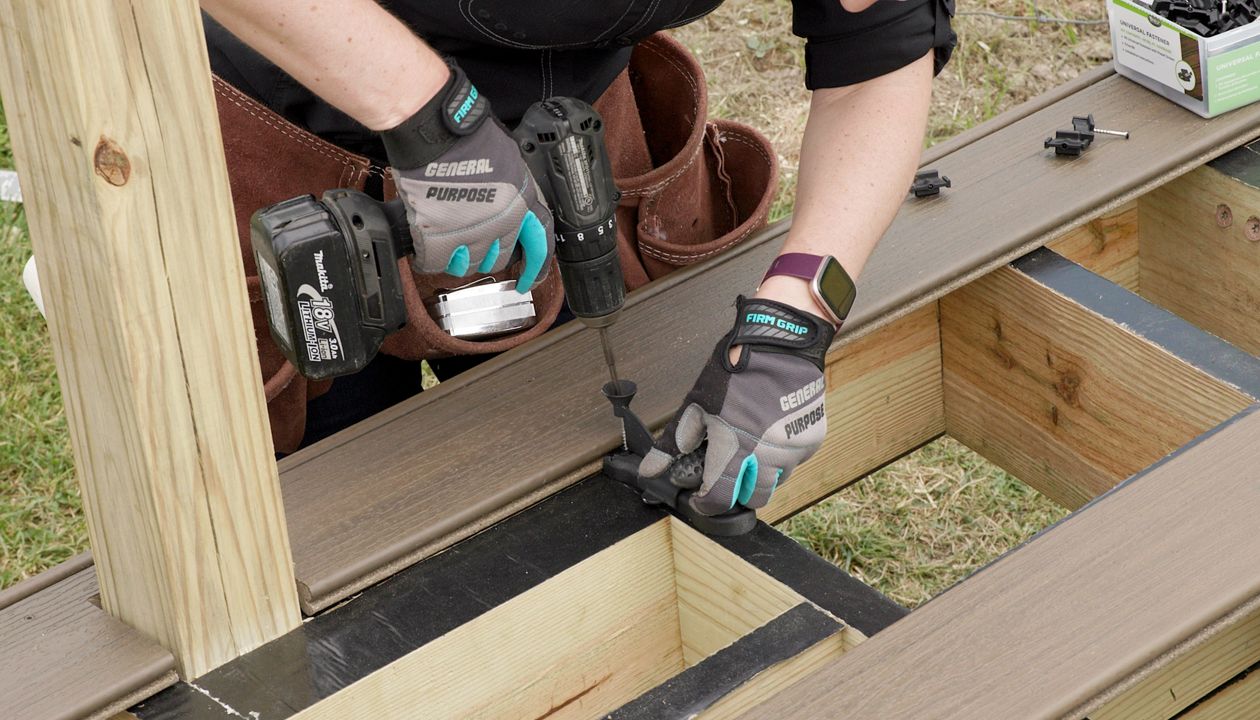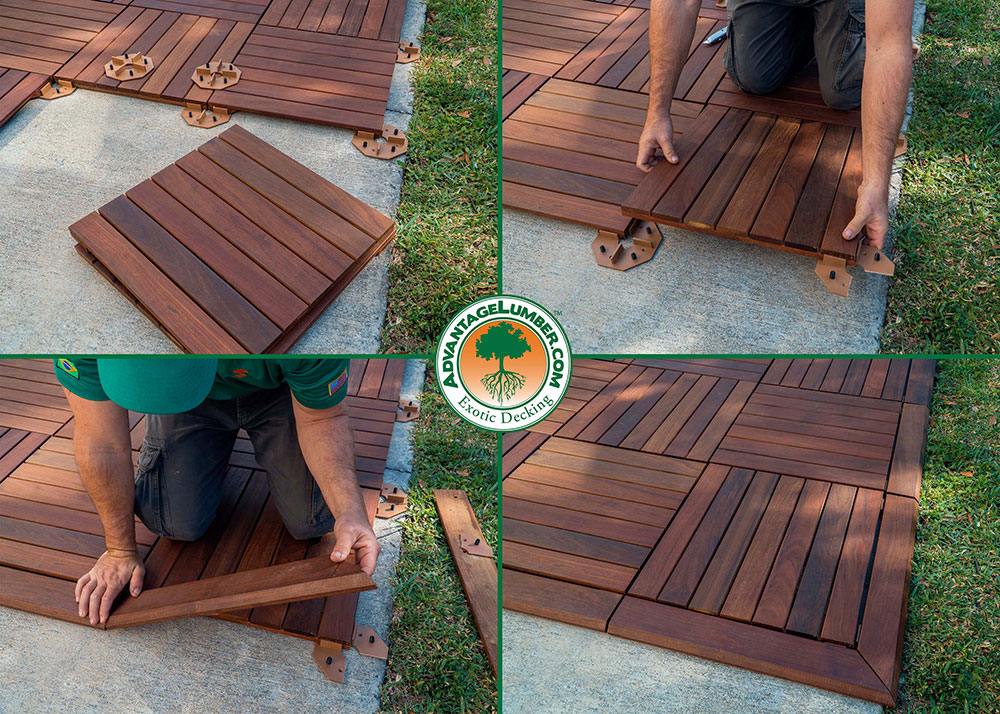Exactly how to Pick the Right Materials for Your Deck Setup Project
Selecting the suitable materials for your deck installment task can seem difficult. There are many variables to consider, from resilience and upkeep to appearances and environmental effect. The option in between traditional timber and composite products, each with its own set of advantages and downsides, can be especially difficult. The trick is to balance your spending plan, design preferences, and way of living needs to create a deck that will boost your exterior area for years to come.
Understanding the Various Kinds of Deck Materials
When embarking on a deck setup project, the selection of materials ends up being a pivotal decision. Composite products, on the other hand, are a mix of timber and plastic, offering longevity and resistance to weather components. By understanding these distinctions, homeowners can make an extra educated choice on the most ideal deck material for their specific demands.
Assessing the Sturdiness and Maintenance Requirements of Deck Materials
Assessing the longevity and upkeep demands of deck materials is a crucial step in deck installment. Sturdiness entails the material's capacity to withstand harsh weather condition problems, wear and tear, and its longevity.
Comprehending maintenance requirements is similarly crucial. Some materials call for normal sealing or discoloring to maintain their appearance and stand up to wetness damage, while others, like composite outdoor decking, demand less upkeep. By examining these aspects, one can select the most ideal decking product, guaranteeing an equilibrium in between resilience, upkeep needs, and visual appeal.
Cost Analysis: Comparing Timber and Composite Decking
Although cost might originally appear like an additional worry, it is a considerable aspect when comparing wood and composite outdoor decking. Wood, typically a less pricey alternative, has a lower upfront expense. Nevertheless, over time, upkeep expenditures can collect, potentially making wood a lot more expensive over time. These upkeep prices might consist of staining, sealing, or replacing harmed boards. On the various other hand, composite decking, while costlier initially, requires less maintenance, potentially lowering lasting expenses. Yet, it's vital to bear in mind that composite outdoor decking isn't unsusceptible damage, and substitute expenses can be high. Potential deck owners need to consider their budget and willingness to preserve their decks when making a decision between wood and composite outdoor decking.
Visual Appeals and Style Flexibility of Decking Products
All-natural timber outdoor decking gives a timeless, ageless appearance, while composite products provide a broad range of colors and textures to match varied tastes and designs. Compound products, while less flexible in style, are still versatile sufficient for a lot of deck layouts. These factors, as a result, are vital determinants in the choice of decking product.
Ecological Impact of Decking Materials
When choosing decking products, one should take into consideration not only visual appeals and durability, but also the environmental effect. It is very important to assess the sustainability of products and explore recycled outdoor decking alternatives. Comprehending the possible influence on local ecological communities will ensure a more ecologically liable selection.
Analyzing Product Sustainability
In the world of deck construction, evaluating product sustainability is a crucial action. Composite outdoor decking products usually integrate wood and plastic, reducing the demand for new hardwood yet raising dependence on fossil fuels - deck installation austin. Thus, the selection of outdoor decking products must balance functionality, visual appeals, price, and sustainability to ensure an accountable and lasting installment.
Recycled Decking Choices

Compound decking is especially popular due to its toughness and ease of upkeep. Recycled plastic outdoor decking, on the various other hand, is highly resistant and requires marginal maintenance.

Influence On Local Ecological Communities
While the advantages of using recycled products for decking can not be overstated, it's equally important to take into consideration the more comprehensive ecological implications of these choices. Appropriate disposal of old decking is essential to decreasing garbage dump waste. Essentially, an eco-conscious deck task needs careful product selection, lasting sourcing, and responsible disposal.
Making Your Last Decision: Tips for Choosing the most effective Deck Materials
As the write-up shifts into the subtopic of "Making Your Last Decision: Tips for Choosing the Best Deck Materials", it is vital to recognize the range of deck materials available. Striking an equilibrium between durability and aesthetic appeal is crucial in this selection process. The adhering to conversation will certainly assist visitors in making an informed choice based upon these essential considerations.
Comprehending Different Deck Products
The task of picking the right products for your deck installation can appear discouraging as a result of the substantial range of options readily available. Nevertheless, recognizing the various materials can streamline this procedure. Timber is a preferred option, using a traditional aesthetic and price. Sorts of timber used consist of pressure-treated lumber, cedar, and redwood. Compound products, made from a mix of timber and plastic, are low-maintenance and immune to rot and pests. Plastic or PVC decks are a lot more durable and call for much less maintenance than composite view it materials, yet they can look less all-natural. Aluminum decks are strong, lightweight, and immune to rot, but they are also the most pricey choice. Each product has its very own benefits and disadvantages, making it vital to consider your certain requirements prior to making a final choice.
Sturdiness vs. Aesthetic Appeals Equilibrium
Balancing durability with looks can be a challenge when selecting deck materials - deck installation austin tx. High-traffic areas might demand resilient products like composite decking, which endures wear and tear but may do not have the all-natural beauty of timber. Homeowners need to strike a balance, thinking about both the deck's practical demands and their visual choices.
Conclusion
To conclude, selecting the ideal materials for your deck installment job requires cautious consideration of elements such as resilience, upkeep, over at this website expense, looks, and environmental effect. Whether you select typical wood or composite products, your selection must straighten with your budget, style preferences, and lifestyle. Inevitably, the most effective decking product is one that enhances your exterior area and offers satisfaction for several years to come.
 Charlie Korsmo Then & Now!
Charlie Korsmo Then & Now! Shannon Elizabeth Then & Now!
Shannon Elizabeth Then & Now! McKayla Maroney Then & Now!
McKayla Maroney Then & Now! Robin McGraw Then & Now!
Robin McGraw Then & Now! Ryan Phillippe Then & Now!
Ryan Phillippe Then & Now!